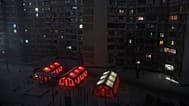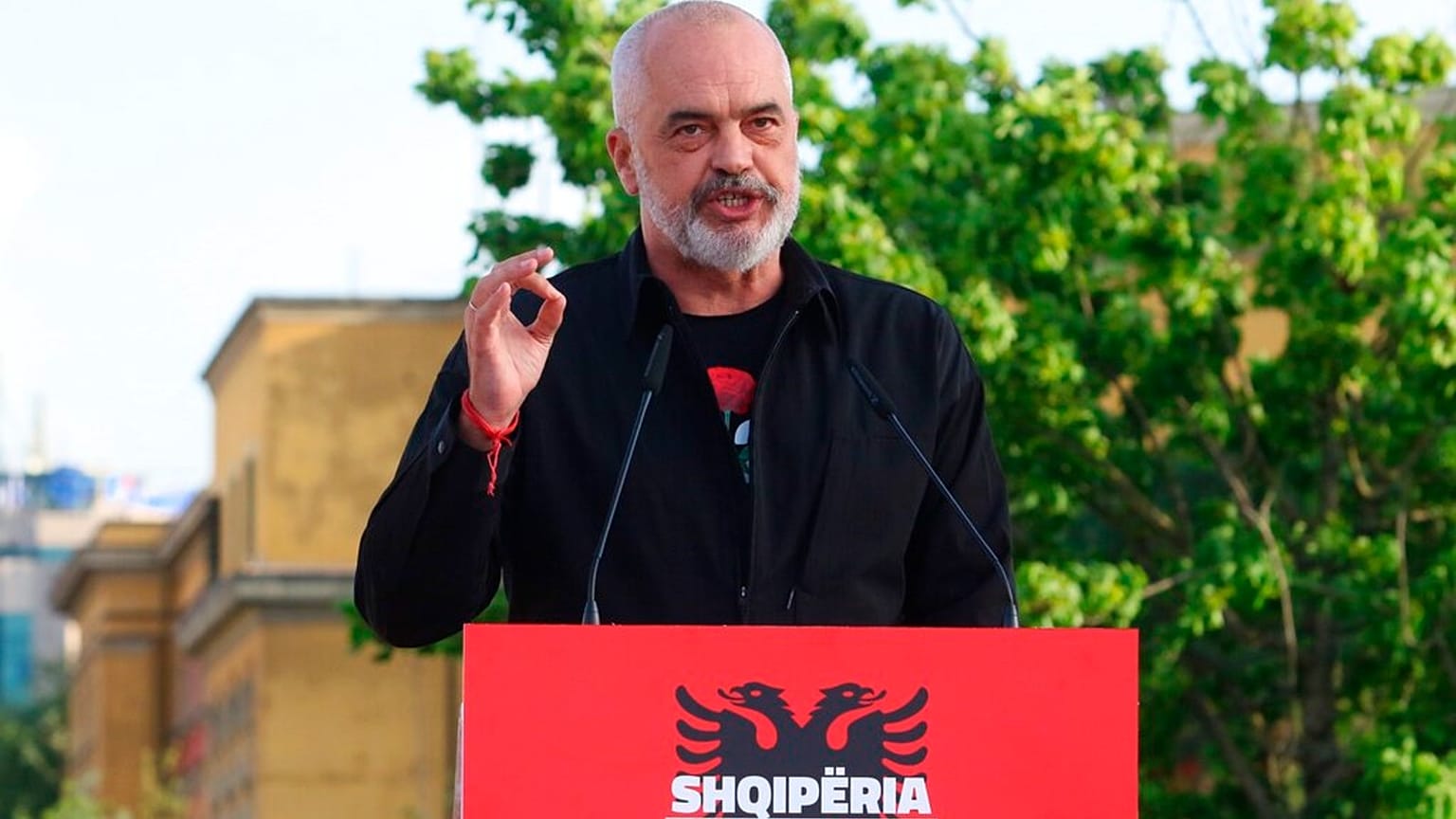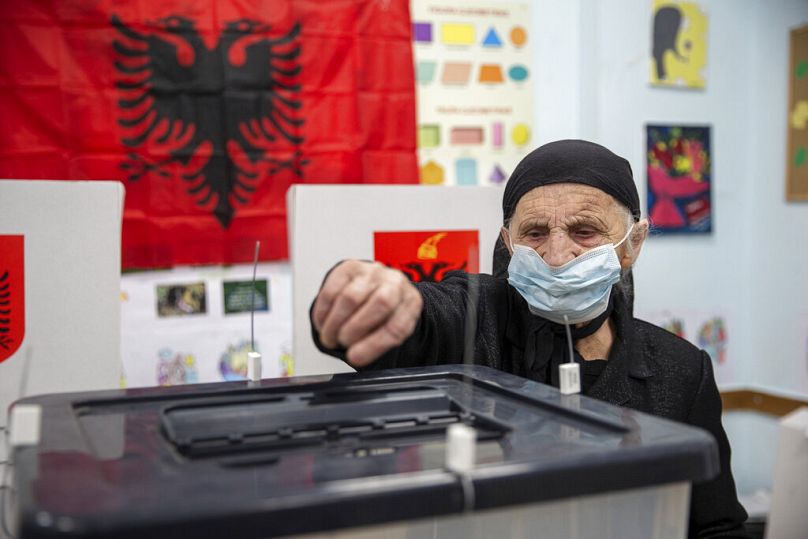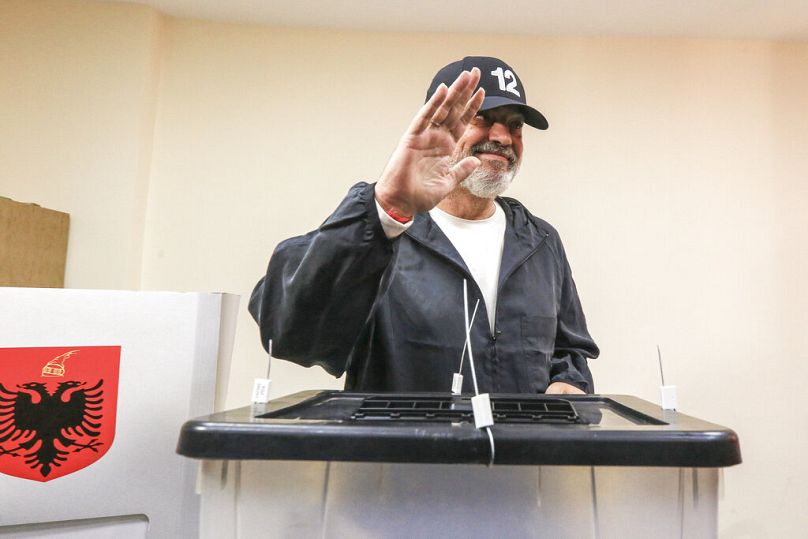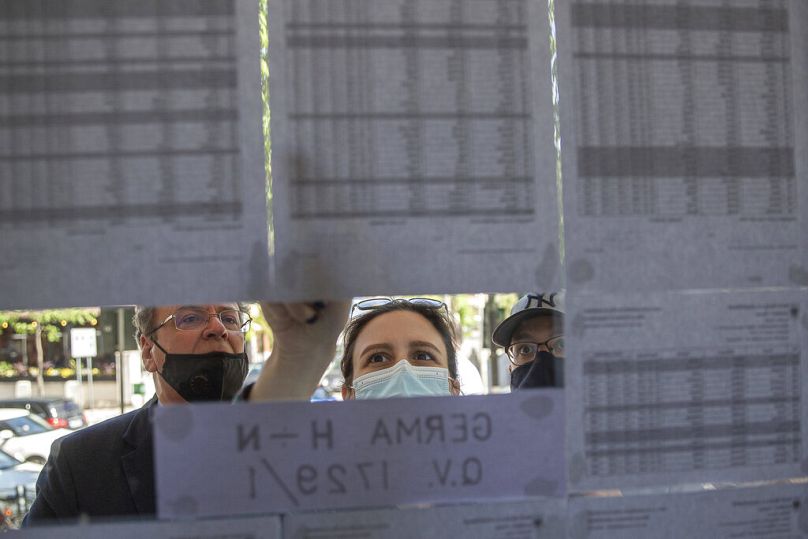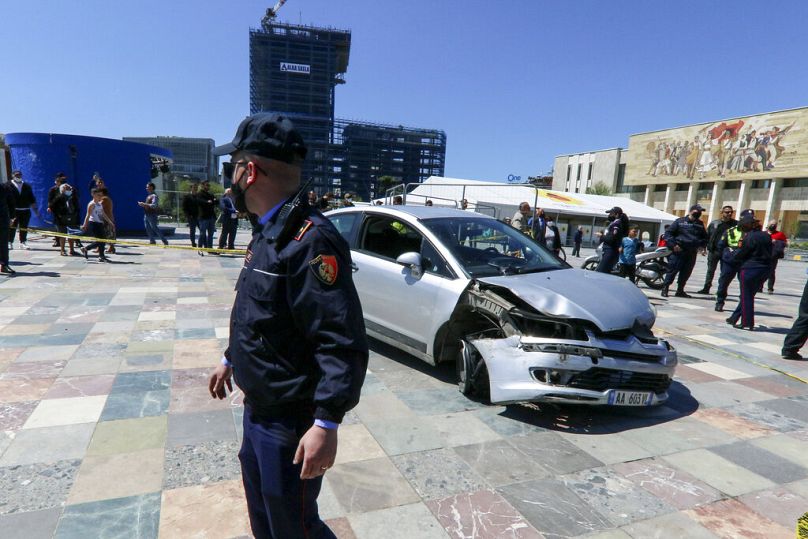Albania’s prime minister Edi Rama claimed “the most beautiful victory” in parliamentary elections, which would make him the country’s first prime minister to win three terms.
Edi Rama has claimed a "beautiful" victory in Albania's parliamentary elections, with preliminary results from Sunday's poll showing his ruling Socialist Party (PS) was on course to retain its majority.
The PS was credited with 49 per cent of the vote on Tuesday afternoon, with fewer than 200 of the country's 5,199 polling stations yet to report. The opposition Democratic Party (PD) had meanwhile secured 39 per cent of ballots.
If confirmed, the results would give the PS 74 of parliament's 140 seats, according to Europe Elects.
Rama, prime minister of Albania since 2013, claimed "the most beautiful victory", congratulating himself on having won a third "historic" term.
He told thousands of his supporters gathered in the centre of Tirana two days after the election "thank you for trusting me to lead a third term".
Earlier he had invited supporters to join him and his PS lawmakers "to embrace victory" at a gathering in the capital on Tuesday afternoon.
Turnout was estimated at below 48 per cent — slightly higher than four years ago.
An initial exit poll run by the MRB, part of the London-based Kantar Group, for Euronews Albania projected that the left-wing Socialists would win about 44 per cent of the vote while the PD was expected to capture about 42 per cent.
The poll projected that the Socialist Movement for Integration, a smaller party, will receive 5.5 to 9.5 per cent of the vote. It is on course to secure 7 per cent of the vote.
All in all, the Socialist Party is projected to secure 67 to 71 seats to the Democratic Party's 61 to 65 seats.
Millions of Albanians went to the polls on Sunday amid the COVID-19 pandemic and following a bitter and divisive election campaign that saw violence and recriminations break out between the country's two main parties.
Around 3.6 million eligible voters, including Albanians overseas, were electing 140 lawmakers among 1,841 candidates from 17 political parties or coalitions, along with some that ran independently.
“The process was characterized by a calm situation, security and integrity,” said Ilirjan Celibashi, head of the Central Election Commission. He said the winner would be known “in 48 hours.”
It was hoped that the post-communist country's 10th parliamentary elections would be free and fair after a string of past elections were marred by irregularities and contested results.
Rama and his main opponent, Lulzim Basha, traded blows in the media ahead of the vote while their supporters clashed on the streets, with a Socialist Party activist shot dead on Wednesday during an alleged confrontation with a Democratic Party supporter.
Basha has accused the incumbent Socialist Party of vote-rigging, corruption, and links to organised crime. His MPs walked out of parliament in 2019 over the allegations.
Rama is hoping to secure a third term after his two previous victories in 2013 and 2009. He has promised to promote tourism, agriculture, and energy projects.
Sunday's election has been described as a milestone in Albania's path towards EU membership, which has repeatedly stalled in recent years amid growing reluctance in Brussels towards enlargement. In 2019, President Emmanuel Macron blocked the start of Albania's negotiations over joining the bloc.
Even if negotiations do begin, significant hurdles remain over key issues such as corruption, organised crime, and institutional reform. Speaking this week, Rama blamed the EU for dragging its feet over Albania, while Basha has accused Rama of failing to make progress during his eight years in power.
A recent poll found that 97 per cent of Albanians want the country to join the EU, making it one of the most pro-EU countries in the Western Balkans.
But even without the COVID-19 pandemic Albania, a country of 2.8 million, has endured a challenging couple of years, having been hit by a devastating earthquake in 2019 that left thousands homeless and repeated waves of civil unrest.
Electronic voting hampered by glitches
No early or postal voting was allowed in the election and people infected with COVID-19 could not vote. Following the approval of reforms last year, a new voters’ electronic identification system and a pilot project on full digitalization of the counting process was being applied on Sunday.
However, the electronic identification machines did not function in 142 out of 5,199 polling stations across the country as no operators to work them were found in those remote areas, according to Ilirjan Celibashi, head of the Central Election Commission.
An Albanian man was also arrested after photographing the ballot, something not allowed by law.
'Grey voters'
Critics say that Albanians are also tired of the same old faces in politics, with Rama having been in government since 1998 and Basha since 2005. A recent poll by Euronews Albania found that all the major candidates - Rama, Basha, and Monika Kryemadhi - had negative popularity ratings.
As a result, Alfonc Rakaj, an analyst, told Euronews ahead of the vote there was a sizable number of so-called "grey voters" that had not yet decided who to vote for - or even whether to vote at all.
"[They are] disappointed with what is on offer," he said. "They are likely to distrust all political parties and political leaders. The main political parties have tried very hard to gain their support, but if polls are to be trusted, none have managed to fully get it."
Rakaj added that he believed the election was "too close to call."
Around 3.6 million Albanians, including the country's large diaspora, are eligible to vote. They will pick 140 out of 1,800 candidates across 12 political parties.
Vetëvendosje
One of the parties running this year is Vetëvendosje, a social democratic movement led by Albin Kurti, who won a landslide in February's election in Kosovo.
Vetëvendosje has fielded three candidates in Albania's election while Kurti has campaigned in Albania by criticising Rama and the other main candidates.
But while Kosovo's ethnic Albanians voted in force to overturn the country's political elite earlier this year and bring Kurti to power, it is unlikely that Vetëvendosje will perform a similar feat in Albania, where the two main political parties are far more entrenched than in Kosovo.
Unrest grows as politicians cast their votes
Days after the fatal shooting in the city of Elbasan, south of Tirana, a car ploughed through barriers to Tirana's main Skanderberg Square on the day of the vote.
The incident on Sunday saw the driver crash through blockades to enter the square, where vehicles are not allowed, before members of the public intervened. One young man jumped through the window to stop the driver, who was then dragged out of the car by other citizens.
It is not yet known whether the incident was politically motivated. The car had come to a halt close to two tents where COVID-19 vaccines were being administered and a smaller tent belonging to the Syri Televizion channel, which was covering the vote.
Political leaders cast their ballots Sunday morning and called on the people to vote despite the recent disturbances. The Prime Minister of Kosovo, Albin Kurti, also cast a vote.
President Ilir Meta was among the first to cast his ballot when his local polling station opened, telling those present: "For the Constitution, for the republic, for democracy, for Albania in Europe."
He declined to comment on tensions, emphasizing that the nation belonged to "the same family, living in the same country."



